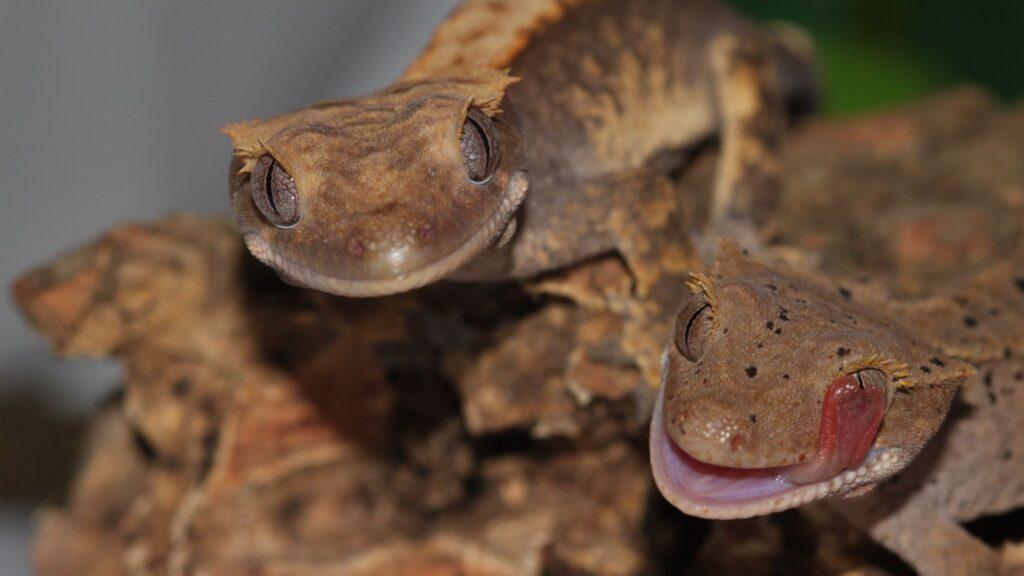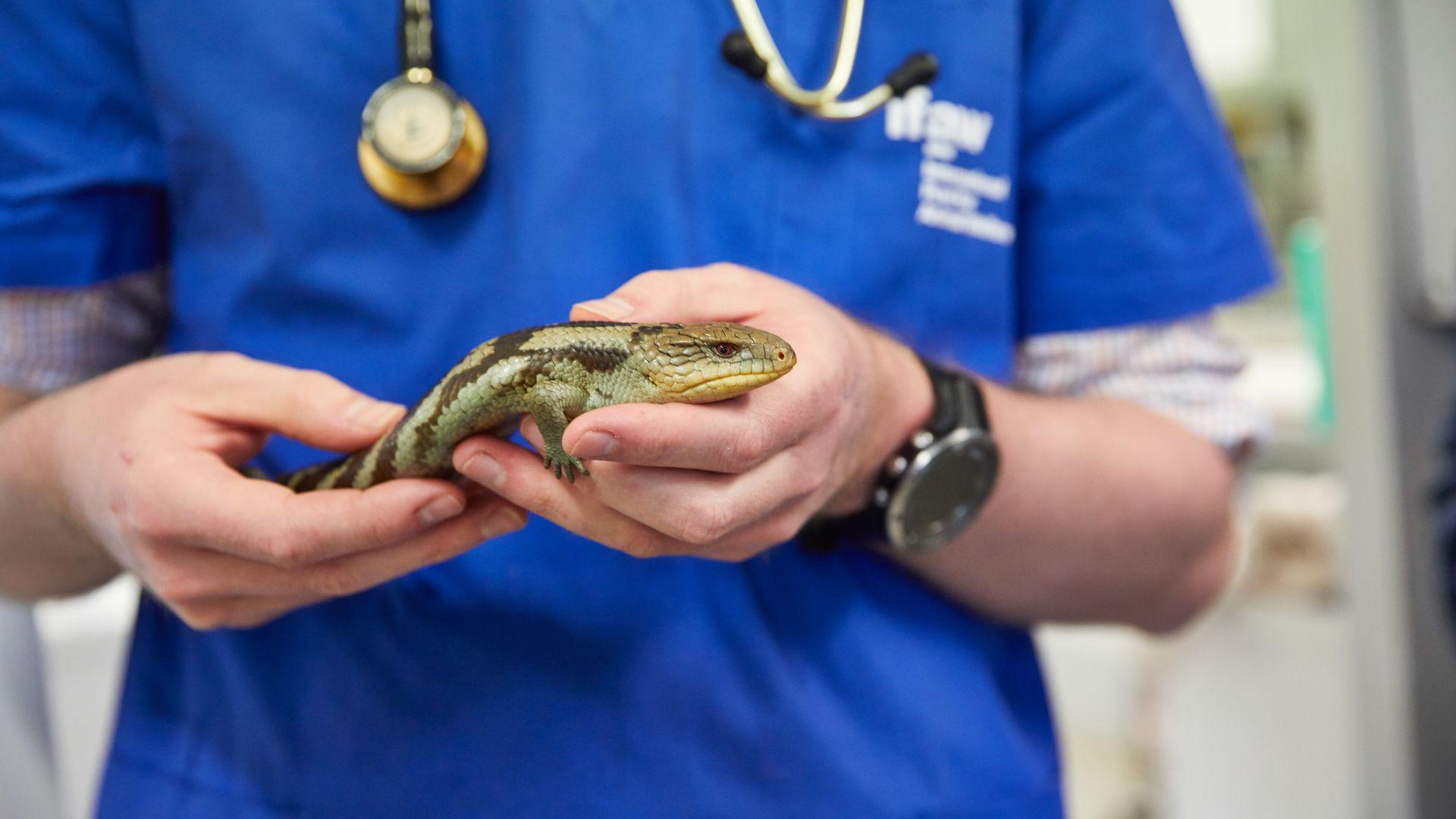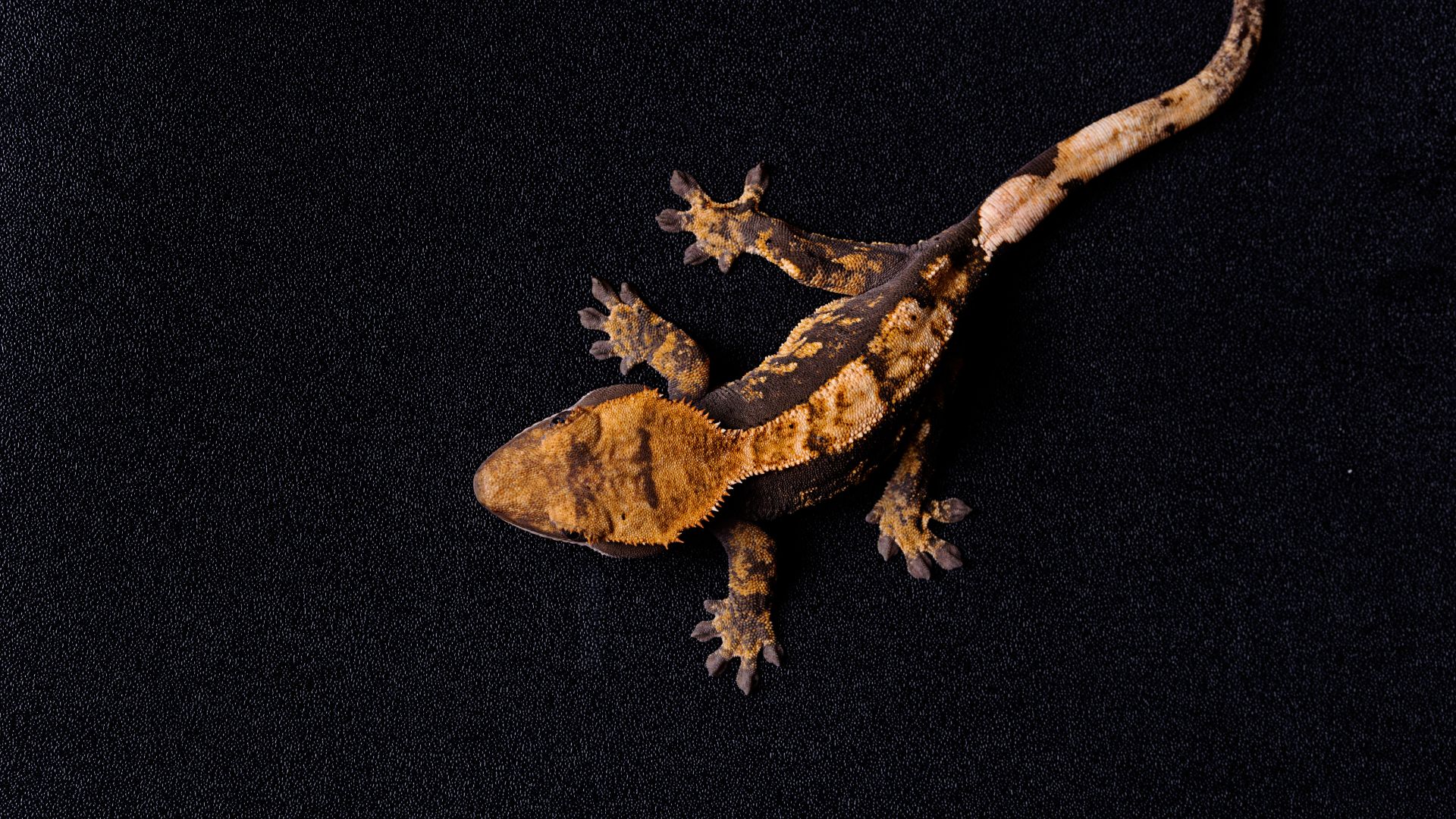
Key Takeaway:
- Rapid throat movement in crested geckos may indicate stress or normal behavior such as licking or swallowing.
- Fast breathing in crested geckos can be a sign of respiratory infection or other health issues, and it’s important to seek veterinary care from a reptile specialist as soon as possible.
Crested geckos are a popular pet due to their low maintenance requirements and calm demeanor.
However, sometimes you may notice your crested gecko moving quickly, which can be concerning.
There are several reasons why your crested gecko may be moving fast, and whether it’s a bad thing depends on the context.
In this article, we will explore some of the common reasons why crested geckos move fast and what you should look out for to ensure your pet’s health and well-being.
Why Is My Crested Gecko’s Throat Moving Fast?
If you notice your crested gecko’s throat moving quickly, it could be a sign that they are stressed or feeling threatened.
This behavior is often accompanied by other signs of stress, such as flattened body posture, tail waving, and hissing.
Another possible reason for rapid throat movement is that your crested gecko is licking or swallowing.

This could be due to a variety of reasons, such as feeling dehydrated, trying to remove a foreign object from their mouth, or experiencing digestive issues.
It’s essential to monitor your crested gecko’s behavior and environment to determine the cause of rapid throat movement.
If you suspect that your crested gecko is stressed or unwell, consult with a veterinarian who specializes in reptiles.
Is It Bad If My Crested Gecko’s Throat Is Moving Fast?
Rapid throat movement in crested geckos can indicate that they are stressed or feeling threatened, but it can also be a normal behavior such as licking or swallowing.
Therefore, whether it’s bad or not depends on the context.
If your crested gecko is displaying other signs of stress, such as hiding, hissing, or flattening its body, it’s important to address the underlying cause of stress to ensure your pet’s well-being.
On the other hand, if your crested gecko is licking or swallowing, it may not necessarily be a bad thing, but it’s still important to monitor their behavior and ensure they have access to clean water and a balanced diet.
Why Is My Crested Gecko Breathing Fast?
If you notice your crested gecko breathing fast, it could indicate a respiratory issue, which can be a serious health concern.
Respiratory issues can be caused by a variety of factors, including infection, environmental stress, or poor husbandry.
Other possible causes of fast breathing in crested geckos include overheating, dehydration, or physical exertion.
It’s important to monitor your crested gecko’s behavior and environment to determine the cause of fast breathing.
If you suspect that your crested gecko has a respiratory issue or any other health concern, it’s important to seek veterinary care from a reptile specialist as soon as possible.
Delaying treatment can lead to further health complications and even death in severe cases.

How Do You Tell If My Crested Gecko Has A Respiratory Infection?
Respiratory infections are a common health issue in crested geckos and can be serious if left untreated.
Some signs to look for that may indicate a respiratory infection include:
Rapid or labored breathing
If you notice your crested gecko breathing rapidly or struggling to breathe, it could be a sign of a respiratory infection.
Wheezing or crackling sounds
Abnormal sounds when breathing, such as wheezing or crackling, may indicate a respiratory infection.
Discharge from the nose or mouth
If your crested gecko has discharge from the nose or mouth, it could be a sign of a respiratory infection.
Lack of appetite or lethargy
A respiratory infection can make a crested gecko feel unwell, resulting in a lack of appetite and lethargy.
Puffy or swollen eyes
Swollen or puffy eyes can be a sign of a respiratory infection or other underlying health issues.
If you notice any of these signs or suspect that your crested gecko has a respiratory infection, it’s important to seek veterinary care from a reptile specialist as soon as possible.
Treatment may include antibiotics, supportive care, and changes to the environment to prevent further infections.
What To Do If Crested Gecko Has A Breathing Problem?
If you suspect that your crested gecko is having a breathing problem, it’s important to take immediate action to ensure its well-being. Here are some steps you can take:
Isolate the gecko
Move your crested gecko to a separate enclosure to prevent the spread of any potential infection to other animals.
Adjust the environment
Ensure that the enclosure’s temperature and humidity levels are appropriate for your crested gecko’s needs.
Provide plenty of clean water to keep your pet hydrated.
Seek veterinary care
Contact a veterinarian who specializes in reptiles as soon as possible. Respiratory infections can be serious, and early intervention is essential for the best chance of recovery.
Follow the veterinarian’s instructions
Your veterinarian will provide specific instructions on how to care for your crested gecko, which may include administering medication, changing the environment, or providing supportive care such as nebulization or force-feeding.

Monitor your crested gecko
Keep a close eye on your pet and continue to provide the necessary care and medication until they have fully recovered.
If you notice any changes in behavior or symptoms, contact your veterinarian immediately.
By taking these steps, you can help ensure that your crested gecko receives the care they need to recover from a breathing problem and maintain good health.
Summary
Rapid throat movement may indicate stress or normal behavior such as licking or swallowing.
On the other hand, fast breathing in crested geckos can be a sign of respiratory infection or other health issues, and seeking veterinary care from a reptile specialist as soon as possible is essential for the best chance of recovery.

